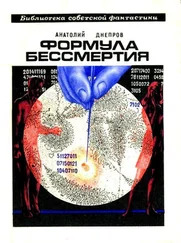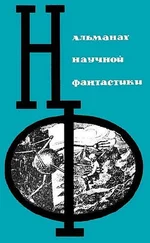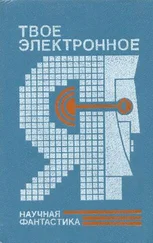Анатолий Днепров - Siema
Здесь есть возможность читать онлайн «Анатолий Днепров - Siema» весь текст электронной книги совершенно бесплатно (целиком полную версию без сокращений). В некоторых случаях можно слушать аудио, скачать через торрент в формате fb2 и присутствует краткое содержание. Город: Toronto, Год выпуска: 1962, Издательство: Collier Books, Жанр: Фантастика и фэнтези, на английском языке. Описание произведения, (предисловие) а так же отзывы посетителей доступны на портале библиотеки ЛибКат.
- Название:Siema
- Автор:
- Издательство:Collier Books
- Жанр:
- Год:1962
- Город:Toronto
- ISBN:нет данных
- Рейтинг книги:5 / 5. Голосов: 1
-
Избранное:Добавить в избранное
- Отзывы:
-
Ваша оценка:
- 100
- 1
- 2
- 3
- 4
- 5
Siema: краткое содержание, описание и аннотация
Предлагаем к чтению аннотацию, описание, краткое содержание или предисловие (зависит от того, что написал сам автор книги «Siema»). Если вы не нашли необходимую информацию о книге — напишите в комментариях, мы постараемся отыскать её.
Siema — читать онлайн бесплатно полную книгу (весь текст) целиком
Ниже представлен текст книги, разбитый по страницам. Система сохранения места последней прочитанной страницы, позволяет с удобством читать онлайн бесплатно книгу «Siema», без необходимости каждый раз заново искать на чём Вы остановились. Поставьте закладку, и сможете в любой момент перейти на страницу, на которой закончили чтение.
Интервал:
Закладка:
"Of course," I replied. "Because the figures you feed it in the form of impulses are in themselves meaningless. Your machine does not know what to do with them. It doesn't know what the problem is about or what is wanted. Because the machine, being an inanimate thing, is incapable of analysing a problem. Only the human brain can do that."
My companion smiled. He got up and walked up and down the compartment a few times. Then he sat down again and lit another cigarette.
"There was a time," he continued, after a pause, "when I thought exactly as you do. Can a machine really replace the human brain? Can it perform complex analytical functions? In short, can it think? Of course not, I told myself emphatically. And I was firmly convinced of it. I had just begun designing electronic computing machines at that time. But much has changed since then. In those days the electronic computer was a vast complicated affair occupying a whole building by itself. It weighed hundreds of tons, took thousands of kilowatts of electricity to run, and required a fantastic number of radio tubes and miscellaneous parts. And with each improvement in the design, the machines grew in size, until they became electronic giants which, though they solved the most complex mathematical problems, nevertheless required constant human attention. And with all their miraculous qualities, they were nothing but dull stupid monsters. At times I believed this would always be the case. You probably remember when electronic translation machines first appeared. In 1955 machines that translated articles on mathematics from English into Russian and back were designed simultaneously here and in America. I read a few of the translations and they weren't bad. At that time I was already working on machines designed for non-mathematical operations. For more than a year I had been engaged in designing machines for translations.
"I must say that the mathematicians and designers would never have been able to make these machines without the linguists, who helped to compile the orthographical and syntactical rules so that they could be coded and fed into the long-range memory of the machine. Needless to say, the difficulties were colossal. But finally we succeeded in designing a machine which translated Russian articles and books on all subjects into English, French, German and Chinese. The machine translated as fast as the keyboard operator fed the Russian text into it. It was able to work out its own code for translation.
"While working on improvements to one of these translating machines I fell ill and spent about three months in hospital. I had had a serious case of brain concussion during the war as a result of injuries received during a
German air raid on the radar station of which I was commander, and the after-effects made themselves felt, as they still do now and again. I happened to be working on a new type of magnetic memory for electronic machines when my own memory began to play curious tricks on me.
"I would meet someone I knew quite well and find that I could not for the life of me remember his name. The names of familiar objects and the meanings of familiar words would completely escape me. The same thing happens to me occasionally even now, but much less frequently. . . . At that time, however, it was a real calamity. One day, I remember, I needed a pencil. I called in my laboratory assistant, but when it came to naming the object I wanted I couldn't think of the word. 'You know . . .' I faltered, 'the thing you write with.' She smiled and came back with a pen. 'No,' I said, 'not that, the other thing.' Another pen?' she asked. 'No, no!' I cried, 'the other thing you write with.' Alarmed by this incoherent babble, she hurried out of the room and I heard her say to someone in the corridor: 'Please go to Yevgeni Sidorovich at once. There is something wrong with him.' One of our engineers came into my office. I had been working with the man for three years, yet at the moment I couldn't remember his name. 'Dear me, my friend,' he said. 'You have been working too hard. Wait a moment, I'll be right back.' He returned with a doctor and two young members of the institute staff, and they led me out of the room, put me into a car and drove me off to hospital.
"While there, I made the acquaintance of one of our leading neuropathologists, Victor Vasilyevich Zalessky. I am mentioning his name now because he was to play an important part in my future.
"After giving me a thorough examination, he slapped me on the shoulder and said reassuringly: 'Don't worry, you'll be all right soon. It is a clear case of . . .' and he mentioned a Latin term unfamiliar to me.
"The treatment consisted in daily walks, cool baths and sleeping pills. After taking a luminal or nembutal pill at night I would awake in the morning feeling as if I had emerged from a dead faint. But gradually my memory began to return.
"One day I asked Dr. Zalessky why he had prescribed sleeping pills. 'Because when you sleep, my friend, your whole organism is busy repairing disrupted communication lines in your nervous system.5 'Communication lines?' I echoed, puzzled. 'Yes, the wires that transmit all your sensations to your brain. You are a radio specialist, aren't you? Well then, your nervous system is something like a complicated radio installation in which some of the conductors have been damaged.'
"I stayed awake for a long time after that conversation, in spite of the sleeping draught.
"The next time I saw my doctor I asked him to give me something to read about the human nervous system. He brought me Pavlov's Lectures on the Work of the Cerebral Hemispheres. I tell you I literally swallowed the book. And do you know why? Because I found in it what I had long been seeking, the principles of the design of new and more perfect electronic machines. I saw now that what was needed was to copy the structure of the human nervous system, the structure of the brain.
"Although my doctors had strictly forbidden any serious mental exertion, I contrived to read several books and journals dealing with the functions of the nervous system and the brain. Reading about the human memory, I learned that the innumerable impressions man gains from contact with his environment are stored in groups of brain cells or neurones. I learned that there are several billion such neurones. I realized that contact with nature, man's observation of the world, his day-to-day experience give rise to associations in the central nervous system which duplicate nature, as it were. All this is recorded in the different departments of the human memory in the form of code signals, in the form of words and images.
"I remember how tremendously impressed I was by the work of one biophysicist who had studied the functions of the optic nerve. He had severed the optic nerve of a frog and had attached the ends to an oscillograph. When he directed a bright light at the eye, the oscillograph registered a rapid succession of electrical impulses exactly like those used in coding the ciphers and words in electronic machines. Signals from the outside world are sent along the nerves to the brain neurones in sequences of 'noughts' and 'ones' similar to electrical impulses.
"The circle was complete. The human nervous system functions on much the same lines as electronic machines. There is, however, one very important difference-the former regenerates and perfects itself as a result of experience. The human memory is perpetually being enriched by new impressions absorbed from the environment, the study of sciences, the recording by the brain cells of a myriad of experiences, images, emotions. The same cannot be said of the machine, which does not feel the world around it; its memory is limited and is not enriched by new facts except through the agency of man.
"Was it possible to create a machine capable of developing and perfecting itself by virtue of some inner laws of its own? Could one build a machine that would be able to enrich its own memory without or with a minimum of human assistance? Could a machine learn to compute (I do not say 'think' because I am not sure what that word means as applied to a machine) logically as it observes the outside world or carries out scientific research, and thus be able to create its own program of operations for a given purpose?
Читать дальшеИнтервал:
Закладка:
Похожие книги на «Siema»
Представляем Вашему вниманию похожие книги на «Siema» списком для выбора. Мы отобрали схожую по названию и смыслу литературу в надежде предоставить читателям больше вариантов отыскать новые, интересные, ещё непрочитанные произведения.
Обсуждение, отзывы о книге «Siema» и просто собственные мнения читателей. Оставьте ваши комментарии, напишите, что Вы думаете о произведении, его смысле или главных героях. Укажите что конкретно понравилось, а что нет, и почему Вы так считаете.





